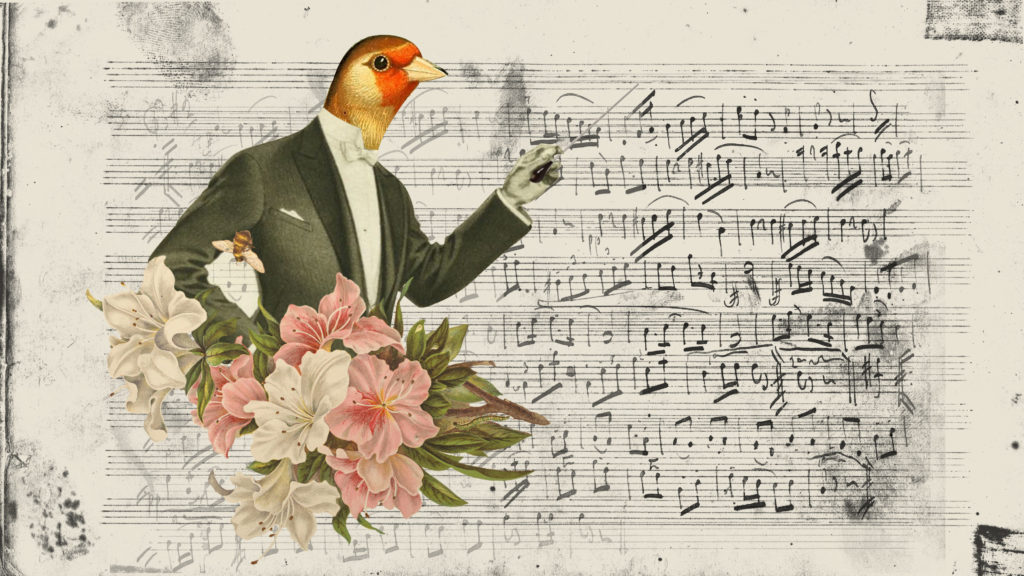
For centuries, composers have been drawing musical inspiration from the oldest melody-makers in the world: birds.
Take, for instance, “Sumer is Icumen In.” We aren’t exactly sure who composed it, but we do know that it heavily features both melodic and lyric references to the cuckoo bird— a species that would continue to inspire the likes of Handel, Beethoven, and Mahler hundreds of years later.
https://www.youtube.com/watch?v=sMCA9nYnLWo
What keeps drawing composers back to our feathered friends? How have birds influenced the way we think about music, and how has music influenced the way we think about birds?
Enter Kristen Englenz, Nashville Public Radio’s resident bird expert. By day, she works in our corporate support departement. But she’s also a musician, the 2009 International Bird Call Imitation Champion, and hosts her own bird call YouTube series, ”
Caterwauling with Kristen.”
This story is best experienced by listening, but here are some interview highlights:
On why she thinks composers are drawn to the cuckoo (and why they aren’t as charming as we think):
Kristen Englenz: “It’s such an iconic sound, and it’s approachable. It’s two notes for the most part, and you know it kind of gets stuck in your head… but they’re actually a parasitic bird. So they lay their eggs in other birds’ nests and then just leave and let the other birds raise their young.”
https://www.youtube.com/watch?v=JZF1xUrD_Fg
On why the goldfinch is difficult to imitate, and how Vivaldi gets close:
KE: [Goldfinches] just pick up other bird songs and adapt them into their own and learn different patterns throughout their entire lives. One of the iconic chirps has the rhythm of “potato chip,” and that’s the rhythm [at the beginning of Vivaldi’s concerto]. So I’m thinking that’s definitely goldfinch territory.
https://www.youtube.com/watch?v=uAbZIqOUDjk
On how the serene and graceful quality of Camille Saint-Saën’s “The Swan” from
The Carnival of the Animals is more suited to how the bird looks, rather than how it behaves:
KE: Their temperament is just nasty. They hiss if they’re angry. If you see a swan, likely you’ll have someone telling you to stay away from the swan. They’re not a bird to be approached, especially when they have a nest nearby.
https://www.youtube.com/watch?v=3qrKjywjo7Q
On which composer most accurately imitates birds in their work:
KE: [Olivier Messiaen] definitely did the most accurate job representing as closely as possible what the call actually sounded like for each bird. I’ve heard him speak about birds as well, and he’s cuckoo… in a good way.
https://www.youtube.com/watch?v=9QdgUJss9BU
On why she thinks composers are drawn to birds:
KE: Whether they’re calling out to a mate or sending a warning or saying ‘hey, there’s some food here,’… they do it all in pitches and music, in way. And I think that’s just fascinating, and it’s kind of like an ideal way of being for musicians.
